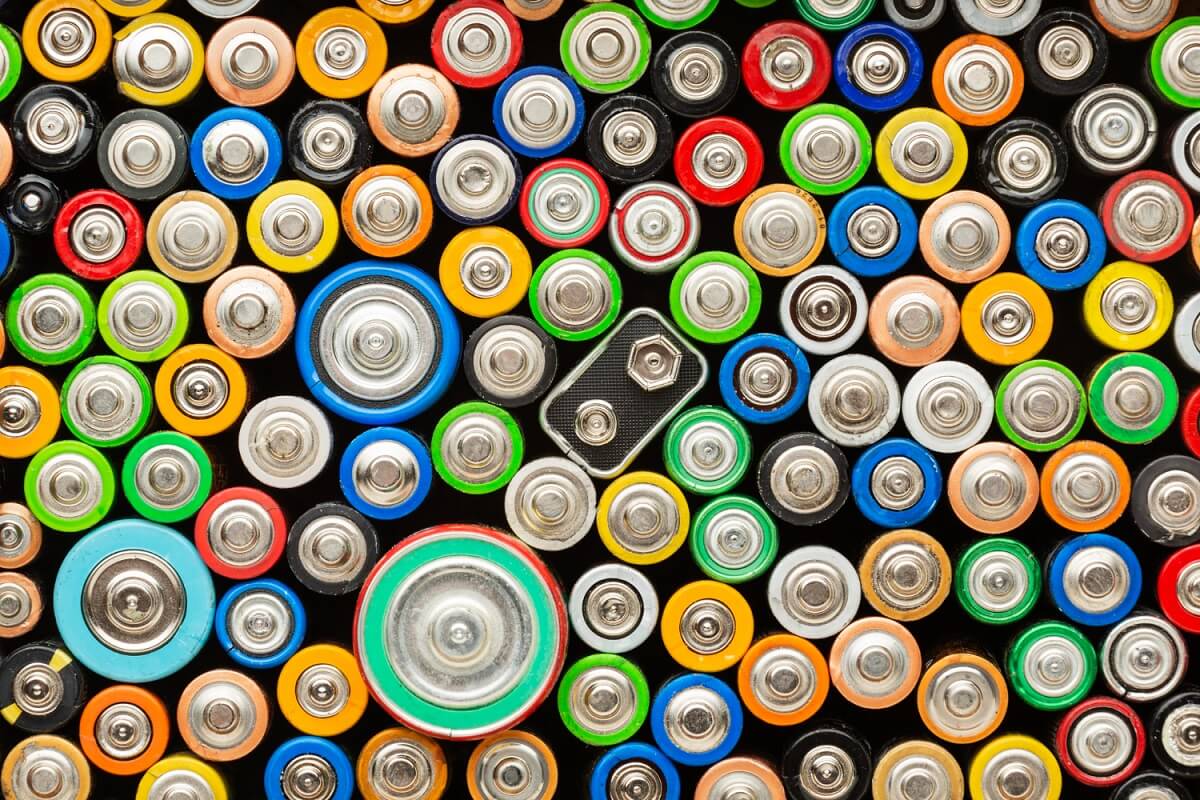Used batteries are hazardous waste. Disposed of in an uncontrolled manner, they pose a great threat to the environment. The substances contained in batteries may pollute soil and water. And indirectly harm human health. Old batteries and accumulators may irreversibly degrade the natural environment. How to properly dispose of old batteries? Why is recycling old batteries important for the environment?
Table of Contents
What hazardous substances do old batteries contain?
Batteries contain many substances that are toxic to the environment and humans. One ton of waste batteries on average contains around 3 kilograms of mercury, half a kilogram of cadmium, and several tonnes of nickel. In addition, many batteries contain lead, lithium, zinc, and manganese. The discarded batteries are washed away by rainwater. Heavy metals and other components, which then get into water and soil, causing dangerous contamination. When these substances are released into the environment in an uncontrolled way, the natural environment will be irreversibly degraded.
Did you know that one button cell (eg LR44) can contaminate a cubic meter of soil and poison 400 liters of water? Think about the environmental impact of an old car battery left in the woods or into water. The growing ecological awareness, especially among young people, is a great chance to improve the current state of affairs.
Recycling old batteries
It is estimated that only a small percent of all batteries in the world are recycled today. The rest goes to ordinary garbage cans and ends up in landfills. There, hazardous substances get into the environment during standard waste disposal. Fortunately, many electronics stores, supermarkets, and schools have bins for used batteries. They can be disposed of in a controlled and environmentally safe manner. Then the used batteries are recycled.
Battery recycling companies are able to recover up to 99.5% of all battery components. The recovered raw materials include paper, plastic, but also metals-iron, as well as non-ferrous metals, such as aluminum, copper, nickel, cobalt, and cadmium. All these materials are successfully used in the manufacture of subsequent items.
Battery recycling collection points
It is good to know that many countries have penalties for throwing batteries into ordinary garbage cans. Thus, they not only endanger the environment but can also cause a fire. Remember to recycle your batteries safely. Take advantage of the possibilities offered by throwing away old batteries at free collection points. Do it for yourself and the environment. Find out the nearest battery recycling collection points near your address. When next time you will have in your hand an old battery, think about the earth and ecology. Be green, be smart, be eco.
Are electric car batteries harmful to the environment?
The recycling of old batteries will be a major challenge for the automotive industry in the future. The growing popularity of electric cars means that solving the problem of recycling old batteries will be a key problem in the industry. Experts believe that manufacturers of car batteries should standardize production methods today. Today, many brands are following their own path. The battery life for electric cars today is an average of about 8 years and 160,000 kilometers traveled. Therefore, the world may soon be flooded with thousands of toxic waste. Do battery recycling companies are up to the task?
Are electric car batteries eco-friendly?
Fortunately, batteries from electric cars are a tasty morsel for recycling companies. Their size and complex structure make it possible to recover many valuable items from them. Battery modules for electric cars are used, for example, for storing electricity generated by photovoltaic panels in-home solar energy installations. Thus, batteries in electric cars can be considered environmentally friendly. As long as they are used and disposed of properly.

Our contributing author is a passionate advocate for eco-friendly living and sustainability. With a background in eco-life, they are dedicated to inspiring and empowering individuals to adopt environmentally conscious lifestyles. Through insightful articles, they share practical tips, innovative solutions, and thought-provoking perspectives to promote a greener, more sustainable world. Join them on the journey towards eco-smart living and discover how small choices can make a big impact. 🌱









